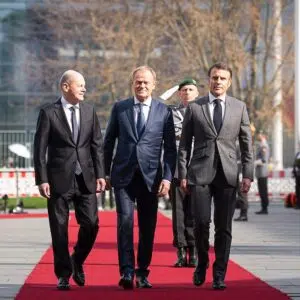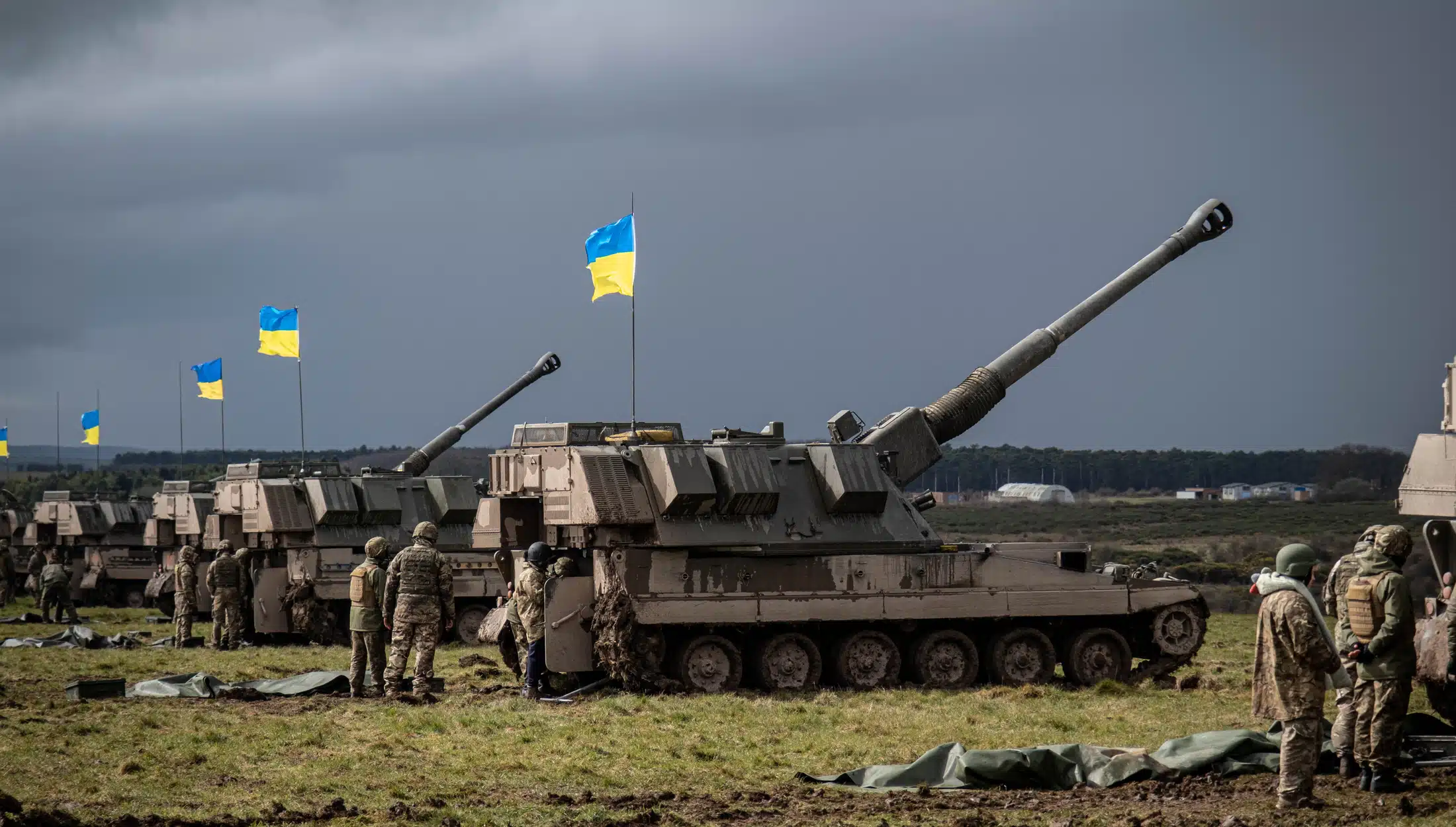Brussels – Restarts from Berlin, but especially from the “unanimous” support for Kyiv, the Weimar Triangle between Germany, France, and Poland. “Today we agreed on a number of priorities, including the immediate procurement of even more weapons for Ukraine on the entire world market,” announced German Chancellor Olaf Scholz at the end of today’s summit (March 15) meeting with the French President, Emmanuel Macron, and the Polish Prime Minister, Donald Tusk, referring to the launch of “a coalition of Ukraine’s allies for long-range weapons.”
 After the frictions in recent weeks, particularly between Scholz and Macron about the kind of support to be provided to Kyiv and the possibility of intervention by NATO soldiers in Ukraine to confront the Russian army, the regional alliance between France, Germany, and Poland has been strengthened under the banner of “never let Russia win” the war in Ukraine, as Macron made clear at a press conference. However, this will not imply a direct confrontation between Moscow and the EU countries, at least in the three leaders’ intentions: “It is equally clear that we are not at war with Russia,” Scholz pointed out, echoed by the French president himself, pointing out that “we will never take the initiative of an escalation.”
After the frictions in recent weeks, particularly between Scholz and Macron about the kind of support to be provided to Kyiv and the possibility of intervention by NATO soldiers in Ukraine to confront the Russian army, the regional alliance between France, Germany, and Poland has been strengthened under the banner of “never let Russia win” the war in Ukraine, as Macron made clear at a press conference. However, this will not imply a direct confrontation between Moscow and the EU countries, at least in the three leaders’ intentions: “It is equally clear that we are not at war with Russia,” Scholz pointed out, echoed by the French president himself, pointing out that “we will never take the initiative of an escalation.”
Although, in any case, “we want to do everything necessary, starting now, to ensure that the situation in Ukraine, in the coming weeks and months, improves and does not deteriorate,” the Polish premier stressed. That is why “Putin needs to know that the support of the Weimar Triangle members to Kyiv will not wane,” Scholz insisted again, announcing that European countries—that “coalition of allies” of Kyiv—will buy more weapons for Ukraine on the world market and help Kyiv increase its production. “The production of military equipment will be expanded, including through cooperation with partners in Ukraine,” Scholz explained about the “priorities” discussed in Berlin today.

In this context, increased engagement within the EU, “for which we made very important decisions in Brussels this week,” will play a decisive role. A reference to the European Peace Fund that “will receive €5 billion to provide additional military assistance to Kyiv this year,” but also to strengthening the EU mission to train Ukrainian soldiers and to use “significant” profits from frozen Russian assets “to financially support the purchase of tanks for Ukraine”. Finally, to confront the Kremlin’s “imperialist expansionism,” a “new coalition of capabilities for long-range missile artillery under the Ramstein format” (the US-led Ukraine Defense Contact Group) will be formed, the operational details of which will be announced soon.
English version by the Translation Service of Withub







